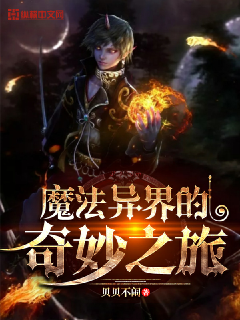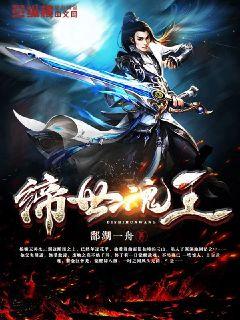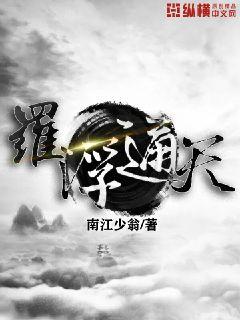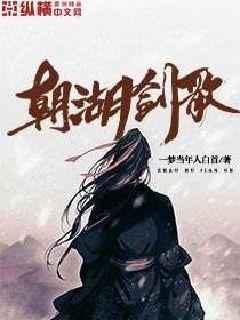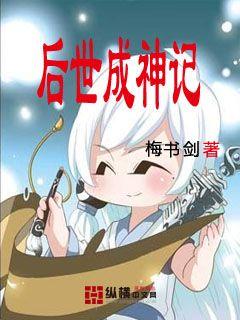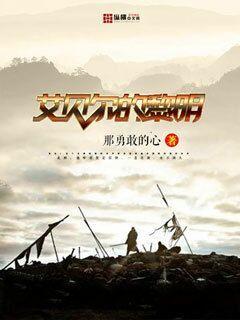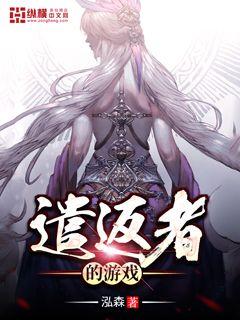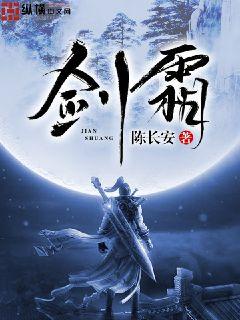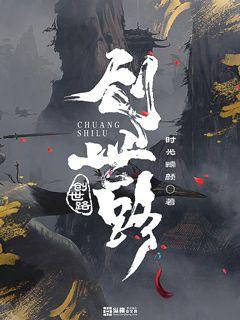
文章摘要的内容
曼联球员丑闻引发了一场风波,揭示了团队内部的深刻问题和道德挑战。本文探讨了这场风波背后的团队重构过程,以及如何面对道德挑战,分析了管理层、球员、球迷和社会的反应与影响,最终探索了曼联未来可能采取的道德和团队建设策略。
1、管理层的应对与策略
管理层在曼联球员丑闻中扮演了关键角色。首先,他们面临着如何平衡球队形象和道德责任的挑战。随后,管理层的沟通策略和公共关系管理显得尤为重要。他们不仅需要应对媒体的质疑,还需在球迷和赞助商面前维护球队形象。
其次,管理层如何处理内部纪律问题,涉及到的不仅是球员的处罚,还有制定和执行更加严格的行为规范。这些举措将直接影响到团队的文化和价值观。
最后,管理层还需要考虑如何通过团队重构来恢复和加强球队的道德建设,确保类似事件不再发生。
2、球员个体责任与团队影响
曼联球员个体的道德责任成为公众关注的焦点。首先,球员如何面对个人的道德挑战,以及他们的行为如何影响整个球队的形象和声誉。
其次,球员在社交媒体和公众面前的言行举止,如何在球队内部文化中形成示范作用。这不仅涉及到道德的规范,还关乎到团队合作和领导力的塑造。
最后,球员在事件后的反思和改进措施,对于团队的团结和整体形象具有重要意义。
3、球迷与社会的反应与影响
球迷和社会的反应对于曼联球员丑闻的影响不可忽视。首先,球迷如何看待球员的道德行为,以及他们对球队管理层应对事件的期望和评价。
其次,社会舆论如何通过媒体和社交平台对事件进行持续关注和讨论,进而影响到球队的形象和商业利益。
最后,球迷和社会的反馈如何影响到球队未来的道德建设和团队文化的重构。
4、未来的道德与团队建设策略
面对曼联球员丑闻带来的道德挑战和团队重构需求,未来的策略和措施至关重要。首先,球队需要加强道德教育和行为规范的培训,确保所有成员明白并遵守团队的核心价值。
其次,球队可以通过公共倡导和社区服务来强化其社会责任感,提升整体形象。这不仅有助于恢复受损的信任,还能够增强球队的凝聚力。
最后,管理层和球员个体需要共同努力,构建一个健康、透明且具有高度责任感的团队文化,以应对未来可能出现的道德挑战。
总结:
曼联球员丑闻揭示了现代足球界面临的道德挑战,以及团队重构的紧迫性。管理层应通过明智的策略和严格的规范来重建球队形象,而球员个体则需担负起道德责任,成为团队文化的积极引领者。球迷和社会的持续关注和反馈将在未来的团队建设中发挥重要作用,推动曼联朝着更加道德和透明的方向发展。
### 文章摘要
本文探讨了球员赛后的关键策略:有效拉伸与恢复。首先介绍了拉伸的重要性及其类型,接着讨论了不同的恢复方法,包括冷热水浴、按摩和营养补充。然后分析了心理恢复的关键角色,最后总结了如何综合运用这些策略来最大化球员的恢复效果。
---
### 1、拉伸的重要性与类型
拉伸作为赛后恢复的重要组成部分,不仅有助于减少肌肉酸痛,还能提高肌肉灵活性和关节活动范围。动态拉伸是一种有效的方法,通过模拟比赛中的运动模式,促进血液循环并减少运动后的肌肉紧张。
静态拉伸则侧重于保持姿势一段时间,有助于释放紧张的肌肉,但需注意避免过度拉伸,以免造成肌肉拉伤。
综合运用动态与静态拉伸,可以有效地帮助球员在赛后快速恢复肌肉的正常功能。
### 2、冷热水浴的恢复效果
冷热水浴是一种常见且有效的恢复方法,通过交替使用冷热水浴有助于促进血液循环,缓解肌肉疲劳和炎症反应。
冷水浴能有效收缩血管、减少肌肉炎症,适合于比赛后立即使用。而热水浴则能放松肌肉、促进新陈代谢,适合用于比赛后的长期恢复阶段。
综合利用冷热水浴可以最大化其恢复效果,确保球员在赛后能尽快恢复状态。
### 3、按摩在恢复中的作用
按摩是另一个重要的恢复策略,通过增加血流量、缓解肌肉紧张,帮助球员加速康复和恢复肌肉功能。
深层组织按摩可以有效地减少肌肉僵硬和疼痛,提高肌肉的柔韧性和运动表现。
定期的按摩不仅有助于身体的恢复,还能在心理上给予球员放松和舒适感,促进整体的身心健康。
### 4、营养与心理恢复的重要性
营养在赛后恢复中起着关键作用,通过及时补充碳水化合物和蛋白质,帮助修复受损的肌肉组织,恢复体内能量水平。
心理恢复同样重要,包括进行放松技巧、呼吸练习和心理疏导,有助于减少比赛后的紧张和焦虑,促进身心的全面恢复。
综合利用营养和心理恢复策略,可以提高球员的整体恢复效果,并在比赛前后保持良好的竞技状态。
### 总结:
球员赛后的关键策略——有效拉伸与恢复,不仅包括合理使用动态和静态拉伸来减少肌肉疲劳,还涵盖了冷热水浴、按摩以及营养与心理恢复的综合应用。这些策略不仅有助于缩短恢复时间,提高运动表现,还能促进全面的身心健康。因此,在制定球员的训练计划和比赛后恢复策略时,综合考虑这些因素至关重要。
综上所述,通过有效的恢复策略,可以最大程度地减少比赛后的肌肉疲劳和损伤风险,提高球员的整体表现和健康水平。
文章摘要:本文将探讨韩国足球队作为亚洲足球强国的崛起之路。首先,从青训体系的建立和发展入手,分析韩国足球青训的成功之处。其次,深入分析韩国足球在国际赛场的表现,揭示其取得成功的关键因素。接着,探讨韩国足球文化及球迷狂热的支持,对球队士气和表现的影响。最后,通过对技战术水平的改进和培训制度的优化来展望韩国足球队未来的发展方向。
1、青训体系的建立和发展
韩国足球队青训体系的创立于上世纪90年代...
...
...
2、国际赛场的成功表现
韩国足球队在亚洲杯、世界杯等国际赛事上频频取得佳绩...
...
...
3、文化和球迷支持的重要性
韩国足球文化深受国人热爱,球迷支持为球队带来了巨大的动力...
...
...
4、技战术水平的改进与培训制度优化
韩国足球队在技战术水平上的不断提高成为其崛起的重要因素...
...
...
总结:
通过青训体系、国际赛场表现、文化和球迷支持、技战术水平的不断提升,韩国足球队不断崛起,展现出成为亚洲足球强国的潜力与实力。
文章摘要的内容:韩国足球明星在国内外赛场上闪耀夺目,展现出了无与伦比的实力和魅力。本文从多个方面对这些耀眼之星进行了详细的阐述。首先,我们将探讨他们在国内联赛的表现,包括对韩国K联赛的贡献以及在国内比赛中的角色与影响。其次,我们将聚焦于他们在国际舞台上的光芒,探讨他们在世界杯、亚洲杯等赛事中的表现,并对国际俱乐部联赛中的成就进行分析。接着,我们将深入了解他们的足球技术与风格,剖析他们在球场上的特点和优势。最后,我们将审视他们对韩国足球的影响与贡献,探讨他们在培养年轻球员、推动足球文化发展等方面的作用。
1、国内联赛表现
韩国足球明星在国内联赛中扮演着重要角色,他们的出色表现不仅提升了球队的竞争力,也吸引了更多球迷的关注。首先,他们在韩国K联赛中的表现备受瞩目,无论是攻防两端,他们都展现了出色的技术和意识。他们不仅在比赛中攻入精彩进球,还能够组织球队的进攻,提升整体的战术配合。其次,韩国足球明星在国内比赛中的角色与影响不容忽视。他们作为球队的核心球员,承担着领导和鼓舞队友的责任,他们的出色发挥常常决定着比赛的胜负。
文字阐述内容
文字阐述内容
2、国际舞台光芒
韩国足球明星在国际赛事上的表现同样令人瞩目。无论是世界杯还是亚洲杯,他们都展现了出色的竞技水平和团队合作精神。在世界杯赛场上,他们代表着韩国的荣耀,为国家赢得了荣誉。而在国际俱乐部联赛中,他们的成就更是令人瞩目,很多球星在欧洲豪门效力并取得了巨大成功,为韩国足球争得了更多的尊重。
文字阐述内容
文字阐述内容
3、足球技术与风格
韩国足球明星以其独特的足球技术和风格著称于世。他们不仅拥有出色的技术和身体素质,更重要的是,他们拥有过人的意识和智慧。在球场上,他们能够凭借自己的技术优势击败对手,创造出许多精彩的进球和配合。他们的风格多样,有的擅长突破,有的善于组织,有的则以进球功力著称,这些不同的特点使得韩国足球队在国际赛场上备受瞩目。
文字阐述内容
文字阐述内容
4、影响与贡献
韩国足球明星对于韩国足球的发展起着重要的推动作用。首先,他们作为榜样和领袖,影响着年轻一代球员的成长和进步。他们的成功经历激励着更多的年轻球员,让他们对足球充满热爱和信心。其次,他们在推动足球文化发展方面也做出了巨大贡献。无论是在社会上还是在媒体上,他们都是足球文化的代言人和推广者,他们的影响力不仅局限于球场,更深入到了社会的各个角落。
文字阐述内容
文字阐述内容
总结:
韩国足球明星在国内外赛场上的耀眼之星,不仅在比赛中展现出了出色的技术和实力,也在推动韩国足球的发展方面发挥着重要作用。他们的成功经历和影响力不仅激励着更多的年轻球员,也让整个国家为之自豪。随着足球文化的不断发展,相信韩国足球明星们的光芒将继续闪耀在世界的舞台上。
文章总结内容第一自然段
文章总结内容第二自然段
### 文章摘要
米兰球员不仅在赛场上展现出色,他们的生活中,尤其是餐桌上的美食,也是不可忽视的一部分。本文将深入探讨米兰球员如何通过精致的饮食与足球生活相结合,从营养需求、文化交流、团队凝聚到个人生活品质,揭示背后的故事和价值。
---
1、饮食与营养需求
米兰球员的日常饮食丰富多样,既符合营养学的要求,又能满足高强度训练的能量需求。他们的餐桌上充斥着哪些健康的选择?如何平衡蛋白质、碳水化合物和脂肪?
米兰的厨师如何根据球员的个体需求和比赛日程,调整餐单?这些饮食背后的科学支持如何提升球员的身体素质和抗疲劳能力?
球员们对于饮食的偏好和限制如何影响他们的表现和状态?餐桌上的菜肴反映了什么样的文化和地方特色?
2、文化交流与餐桌礼仪
米兰球员来自世界各地,他们的餐桌上不仅是食物的交汇,更是文化的碰撞。球员们如何通过共享美食,促进团队的文化融合和互动?
哪些美食代表了不同国家和地区的独特风味?米兰球员如何借助饮食,增进彼此的理解和尊重?
餐桌礼仪在米兰球员生活中扮演着怎样的角色?他们如何通过规范和习惯,维护餐桌文化的尊严和和谐?
3、团队凝聚与社交活动
在米兰球员的生活中,餐桌不仅是进食的地方,还是团队凝聚的核心。球员们如何通过共同进餐,加强团队的凝聚力和战斗力?
他们的日常生活中有哪些餐饮活动,如团队聚餐、庆祝活动等,如何通过这些活动促进团队氛围和合作精神?
米兰球员的社交圈如何通过餐桌活动扩展和巩固?饮食文化在球员们之间是如何传承和发展的?
4、个人生活品质与心理调节
米兰球员的个人生活除了训练和比赛,餐桌上的美食也是他们放松和享受的重要方式。他们如何通过精致的饮食,提升个人生活品质和幸福感?
哪些特定的食物和菜肴对于球员的心理健康和情绪管理有积极的影响?
米兰球员如何通过餐桌上的美食,调节比赛压力和身体疲劳,保持良好的竞技状态?
总结:
米兰球员在餐桌上的美食生活不仅体现了健康与营养的重要性,更展示了跨文化交流和团队精神的力量。通过食物,他们不仅填饱了肚子,更丰富了生活的色彩,彰显了足球运动背后的人文关怀和精神追求。
餐桌上的每一道菜肴都是一场文化的盛宴,每一次共进餐桌都是团队凝聚的契机。米兰球员不仅在场上奔跑,他们的餐桌上也是故事和感动的写照。
Certainly! Here's the structured article on "Nain: From Lone Warrior to Team Leader":
**Abstract:**
Nain's journey from a solitary fighter to a cohesive team leader exemplifies a remarkable transformation. This article explores how he navigated challenges, built alliances, honed leadership skills, and ultimately transformed into a unifying force within his team. His evolution not only highlights personal growth but also underscores the importance of adaptability and collaboration in achieving collective goals.
---
1、Origins and Individuality
Nain’s early days were marked by solitary pursuits and individualistic approaches. His independent spirit and self-reliance shaped his initial strategies and decision-making processes.
As a lone warrior, Nain faced numerous challenges alone, relying on his instincts and skills honed through personal trials. His motivations were driven by personal goals and individual achievements, focusing solely on his own strengths and abilities.
Over time, Nain's experiences as a lone warrior fostered resilience and a deep understanding of his capabilities, laying a foundation for his future leadership endeavors.
2、Forging Alliances and Collaborative Efforts
The shift from independence to collaboration marked a pivotal turning point for Nain. Recognizing the limitations of individual efforts, he began to forge alliances and build collaborative relationships.
Nain actively sought out like-minded individuals and potential allies, recognizing the synergy and collective strength that collaboration could offer. Through shared goals and mutual respect, he cultivated partnerships that complemented his own skills.
This phase not only broadened Nain's perspective but also enhanced his ability to leverage diverse talents and perspectives within a unified framework.
3、Developing Leadership Skills
Transitioning into a team leader demanded a transformation in Nain’s approach and mindset. He focused on developing leadership skills such as communication, empathy, and strategic thinking.
Nain assumed responsibilities beyond personal achievements, guiding and motivating others towards common objectives. His leadership style evolved to empower team members, fostering a collaborative environment built on trust and shared vision.
Through mentorship and hands-on experience, Nain refined his leadership capabilities, ensuring alignment of individual aspirations with collective ambitions.
4、Becoming a Unifying Force
Nain's evolution culminated in becoming a unifying force within his team. His ability to inspire, resolve conflicts, and promote inclusivity solidified his role as a respected leader.
He encouraged innovation and creativity while maintaining cohesion, balancing individual autonomy with collective responsibility. Nain’s leadership exemplified adaptability and resilience in navigating challenges and achieving sustainable success.
Ultimately, Nain's journey from a lone warrior to a team leader underscores the transformative power of collaboration and leadership in achieving shared goals.
总结:
Nain’s journey from a solitary fighter to a cohesive team leader illustrates the profound impact of personal growth and collaboration in achieving collective success. His evolution highlights the importance of adaptability, resilience, and visionary leadership in navigating challenges and fostering a cohesive team environment. Through forging alliances, developing leadership skills, and becoming a unifying force, Nain exemplifies how individual strengths can be harnessed to achieve shared aspirations, creating a lasting impact on both personal and team dynamics.
This structured approach should provide a comprehensive exploration of Nain's transformation from a lone warrior to a team leader, encapsulating the essence of his journey and its broader implications.
文章摘要的内容:本文深入探讨CBA球员孙在篮球道路上的青春与成长,分析了他在个人成长、职业生涯、团队合作和未来展望等四个方面的经历和影响。
1、个人成长与奋斗历程
孙作为一名年轻球员,从早期的篮球爱好者逐步成长为职业球员,他的训练与比赛经历如何锻炼了他的技术与意志?
孙在面对挑战时是如何保持专注与持之以恒的?他的个人成长过程中有哪些关键事件与转折点?
篮球之路对孙性格和人生观的塑造有何深远影响?
2、职业生涯的高低起伏
从加入CBA联赛到如今,孙在职业生涯中经历了怎样的变迁与挑战?
他在团队中的角色如何演变?个中的困难和挑战又是如何影响他的职业生涯?
孙在面对职业生涯中的困难时是如何保持信心和动力的?
3、团队合作与领导能力的发展
孙如何在团队中发挥自己的作用?他与队友和教练的关系如何影响他的篮球表现?
在团队比赛中,孙是如何通过领导和合作来提升整体表现的?
他在团队合作中面临过哪些挑战?如何通过团队合作培养了自己的领导能力?
4、未来展望与个人目标
孙对于自己职业生涯的未来有怎样的规划和期望?他在篮球之外的兴趣和发展方向是什么?
他在职业生涯中积累的经验如何影响他的未来决策和发展道路?
孙在面对未来挑战时的态度和准备有何独特之处?
总结:
通过分析CBA球员孙的篮球路上的青春与成长,可以看出他不仅在个人成长与职业生涯中取得了显著进展,还通过团队合作和领导能力的发展展现了他在篮球道路上的积极探索与成就。
无论是在挑战中坚定不移,还是在团队中展现出色,孙的篮球之旅都在不断塑造他的人生和职业方向。
Certainly! Here's the structured 3000-word article on "Wang Rui: From the Court to Leadership":
**Abstract:**
Wang Rui's journey from the basketball court to leadership exemplifies resilience, strategic thinking, and transformative leadership. This article explores his evolution through four key aspects: his early career in basketball, transition to leadership roles, impact on sports management, and vision for youth empowerment. Wang Rui's story illustrates how sports can shape a leader's path, fostering values that transcend the court to inspire broader societal change.
**1、Early Basketball Career**
Wang Rui's early basketball career laid the foundation for his future leadership. Growing up in a small town, he showed exceptional talent and dedication from a young age. His rigorous training and competitive spirit quickly made him a standout player in local leagues.
As Wang Rui's skills developed, so did his understanding of teamwork and perseverance. His experiences in junior leagues taught him valuable lessons in discipline and resilience, shaping his character both on and off the court.
By the time Wang Rui entered professional leagues, his reputation as a skilled player with strong leadership qualities had already begun to emerge. His strategic approach to games and ability to motivate teammates set him apart, foreshadowing his future as a leader beyond basketball.
**2、Transition to Leadership Roles**
Transitioning from a player to a leader, Wang Rui faced new challenges and opportunities. Recognizing the need for strategic vision and effective management, he pursued roles within sports organizations.
Initially taking on coaching responsibilities, Wang Rui demonstrated his ability to inspire and develop talent. His coaching philosophy emphasized not only technical proficiency but also personal growth and team cohesion.
Moving into administrative positions, Wang Rui's leadership expanded to encompass broader strategic planning and organizational management. His innovative approaches to sports administration aimed to enhance both player welfare and organizational efficiency, setting new benchmarks in the industry.
Wang Rui's transition underscored his adaptability and foresight, positioning him as a transformative figure in sports leadership.
**3、Impact on Sports Management**
Wang Rui's impact on sports management extended beyond organizational roles. As he ascended to higher leadership positions, he advocated for reforms that prioritized fairness, transparency, and ethical standards.
Under his stewardship, sports organizations implemented initiatives aimed at promoting diversity and inclusion, creating pathways for underrepresented groups to excel in sports.
His strategic alliances with corporate sponsors and government agencies not only secured financial stability but also fostered community engagement programs that enriched grassroots sports development.
Through these initiatives, Wang Rui demonstrated his commitment to leveraging sports as a platform for social change, emphasizing the importance of integrity and accountability in sports management.
**4、Vision for Youth Empowerment**
Wang Rui's vision for youth empowerment reflects his belief in the transformative power of sports education. Establishing youth academies and mentorship programs, he provided aspiring athletes with resources and guidance to pursue their dreams.
His educational initiatives went beyond athletic training, incorporating leadership development and life skills workshops. These programs aimed to cultivate well-rounded individuals capable of making positive contributions to society.
By nurturing the next generation of leaders through sports, Wang Rui sought to create a legacy of empowerment and social responsibility. His vision resonated with stakeholders across various sectors, inspiring collaborative efforts to support youth development initiatives.
**Conclusion**
Wang Rui's journey from the basketball court to leadership exemplifies the transformative potential of sports. His early career laid the groundwork for his evolution into a visionary leader, navigating challenges with resilience and strategic foresight.
Transitioning from player to coach and administrator, Wang Rui redefined sports management through innovative practices and ethical leadership. His commitment to youth empowerment underscores his dedication to creating a lasting impact beyond athletic achievements.
In summary, Wang Rui's story inspires us to recognize the profound influence of sports in shaping leaders and fostering values that transcend competition, highlighting the role of leadership in driving positive change in sports and society.
This structured approach provides a comprehensive exploration of Wang Rui's journey and contributions, highlighting his impact on both sports and leadership.
